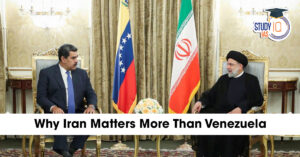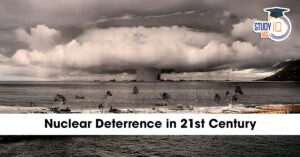Table of Contents
Insurgency in Balochistan: The Balochistan region has long been a hotspot for geopolitical tensions, armed insurgency, and aspirations for independence. At the heart of this prolonged conflict lies the Baloch Liberation Army (BLA)—a separatist militant group—and the broader movement seeking the creation of the Republic of Balochistan. This article delves deep into the causes of the Balochistan insurgency, the origins and operations of the BLA, and the implications of the Republic of Balochistan’s demand on regional and global politics.
What is Balochistan?
Balochistan is Pakistan’s largest yet least populated province, located in the southwestern region of the country. It borders Iran, Afghanistan, and the Arabian Sea, making it a strategically significant area. Despite being rich in natural resources—such as natural gas, coal, and copper—Balochistan remains Pakistan’s most underdeveloped region, with high poverty rates, unemployment, and a lack of basic infrastructure.
Key Facts about Balochistan:
-
Capital: Quetta
-
Area: Approx. 347,190 sq. km (44% of Pakistan’s land area)
-
Population: Around 12 million
-
Ethnic Majority: Baloch, with Pashtun and Hazara minorities
Causes of Insurgency in Balochistan
The insurgency in Balochistan is rooted in decades of political marginalization, economic exploitation, and human rights violations by the Pakistani state. The Baloch people claim they have been denied a fair share of the province’s resources and have little say in the governance of their region.
Major grievances include:
-
Unequal distribution of resource revenues
-
Military presence and operations in civilian areas
-
Disappearances and extrajudicial killings
-
Suppression of Baloch identity, language, and culture
What is the Baloch Liberation Army (BLA)?
The Baloch Liberation Army (BLA) is a prominent separatist militant organization that seeks independence for Balochistan from Pakistan. The group has carried out numerous attacks against Pakistani military personnel, infrastructure, and Chinese interests—especially those associated with the China-Pakistan Economic Corridor (CPEC).
Key Information about the BLA:
-
Founded: Early 2000s
-
Status: Banned terrorist organization in Pakistan, US, and UK
-
Ideology: Baloch nationalism, anti-colonialism
-
Leadership: Thought to be led by commanders such as Aslam Baloch and others in exile
-
Tactics: Guerilla warfare, bombings, targeted killings, and suicide attacks
Major Attacks by the BLA
-
2004–2010: Attacks on gas pipelines, railways, and security forces across Balochistan.
-
2018: Suicide attack on the Chinese Consulate in Karachi, targeting China’s growing influence.
-
2020: Attack on the Pakistan Stock Exchange in Karachi, killing security guards and police.
-
2024: Reported attack that killed 102 Pakistani soldiers, allegedly carried out by BLA fighters—one of the deadliest incidents in recent years.
The Republic of Balochistan: The Secessionist Vision
The Republic of Balochistan is a term used by Baloch nationalists who envision an independent and sovereign Baloch state free from Pakistani rule. This proposed state would encompass:
-
Pakistan’s Balochistan province
-
Parts of southeastern Iran (Sistan and Baluchestan)
-
Southern Afghanistan
Support and Symbolism:
-
Baloch Government-in-Exile: Operates from countries like the UK, advocating for global recognition.
-
Balochistan Liberation Charter: A proposed constitution for an independent state.
-
Baloch Flag: Symbol of identity and resistance
Human Rights Concerns and International Attention
Numerous human rights organisations have raised concerns about enforced disappearances, torture, and extrajudicial killings in Balochistan. Thousands of Baloch activists, journalists, and students have allegedly gone missing, with many later found dead under suspicious circumstances.
-
Amnesty International and Human Rights Watch have documented serious abuses.
-
The issue has been raised in the European Parliament and US Congressional hearings, although most countries officially back Pakistan’s sovereignty over Balochistan.
China’s Involvement: CPEC and the BLA
China’s growing footprint in Balochistan—especially through the Gwadar Port and CPEC infrastructure projects—has made Chinese interests a prime target for Baloch militants. The BLA considers China complicit in the exploitation of Balochistan’s resources and has attacked Chinese engineers, consulates, and convoys.
Pakistan’s Response to the Insurgency
The Pakistani government has responded to the insurgency with:
-
Military operations in restive districts
-
Counter-terrorism legislation and bans on groups like BLA
-
Economic packages and development projects aimed at winning local support
-
Censorship and control over media reporting from Balochistan
Global and Regional Implications
India-Pakistan Tensions
Pakistan often accuses India of supporting Baloch insurgents—a claim denied by New Delhi. Baloch leaders have publicly appealed to India for diplomatic and moral support.
China’s Strategic Interests
Any instability in Balochistan directly threatens China’s Belt and Road Initiative (BRI), making it a key concern for Beijing.
Afghanistan and Iran
The ethnic Baloch population spans across borders. Iran and Afghanistan both keep a close eye on separatist sentiments that could spill over.
The Future of Balochistan: Negotiation or Prolonged Conflict?
The road ahead is uncertain. While some analysts advocate for dialogue and greater autonomy, others fear a prolonged guerrilla war that could further destabilize the region. The demands for independence, human rights, and fair resource sharing remain central to any potential solution.
Conclusion
The Balochistan insurgency, led by the Baloch Liberation Army and supported by separatist groups advocating the Republic of Balochistan, is a complex issue rooted in historical injustice, identity politics, and geopolitical rivalries. As the region remains entangled in internal strife and external interests, achieving peace in Balochistan will require inclusive dialogue, development with dignity, and respect for Baloch rights.


 Supreme Court to Examine Scope of 'Right...
Supreme Court to Examine Scope of 'Right...
 Why Iran Matters More Than Venezuela: En...
Why Iran Matters More Than Venezuela: En...
 Nuclear Deterrence in 21st Century: Is I...
Nuclear Deterrence in 21st Century: Is I...

























